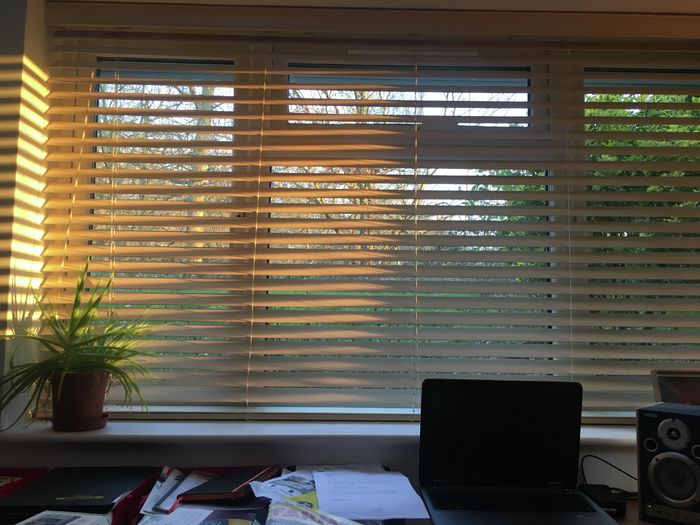A reflection on ‘Cambarrassment’
Is it wrong to feel ashamed of attending this university?

“So, which university do you go to?”—the dreaded question. Much like Marmite, the answer tends to tilt the first impression scale immediately towards either ‘love’ or "hate". I know it often does because five years ago, when I would ask someone this and receive the reply "Cambridge", I would categorically go for the "hate" option. These days my answer to this question comes in two parts: first (eyes glued to the floor) "Cambridge", followed by (upon further interrogation) "uni of". And even though I know I shouldn’t, I often feel embarrassed about going here —ashamed even.
Reverse class snobbery is an ugly and unlikeable trait, particularly when your own upbringing places you firmly in the category of "middle class", and so, not only do I feel embarrassed when people ask which university I go to, I also feel embarrassed of my embarrassment. Let’s just say that if I had to define my relationship with Cambridge on Facebook, I’d go for: "It’s complicated".
Firstly, because I am proud to go here. It’s an achievement to get in, especially as it is something which I never remotely dreamed was on the cards for me. In sixth form, following individual meetings with the school sorting hat (Careers Advisor), a small selection of students received a Hogwarts-style invitation. They had been identified as the "chosen ones"; the rest of us, it seemed, were muggles. In other words, these students were the "Oxbridge" hopefuls. The extracurricular group they were in was called "highflyers" or something of the sort, and included help with the application process and interview prep for the lucky few.
“I decided I fundamentally hated Oxbridge”
In the meantime, I had already stated my intent to the careers advisor to apply to dance college once my A-levels were completed (Dad had insisted they were a necessary backup: he was then and is always right). I got on well at school, and excelled in the more creative subjects, but never considered myself an "academic"; my mind was always somewhere else, as I dreamed of a more exciting place than my GCSE Biology textbook.
Needless to say, I was not identified as a potential Oxbridge applicant (more fool them). Because of this I decided I fundamentally hated Oxbridge: both the silly portmanteau and the pretentious snobs that went there (more fool me). I am ashamed of my past pig-headed prejudices.
Several years later, after applying and receiving an offer, I was disgusted by how openly I had despised this place before. I couldn’t help but feel a hypocrite for deciding to accept. But I’d been working in a restaurant for two years, and knew that the reputation of this place could be my golden ticket to a degree, a different career, and a chance to finally make something of myself.
“A bit of ‘Cambarrasment’ is healthy”
At my bar job at home, a customer once asked me where I went to university. Instead of the expected local answer: University of Kent, or Christchurch, I answered truthfully. The drunk men at the bar took arms immediately: “Think you’re too good to be here serving us commoners then?”, one asked. I wanted to be angry, and yet, how could I be, when a few years ago I would have thought the exact same thing? Later on that night, mopping up the vomit one of them was kind enough to leave for me in the customer bathroom, I allowed myself to feel angry.
So, the other day, when I was attending a master's open evening at a London University, when someone asked which university I go to—I panicked. Everyone else has already answered. Bristol. Nottingham. Greenwich. How could I say "Cambridge" now? They would surely think that I was an elitist prick, I stuttered, and drew even more attention to my answer than if I had answered.
So, is my "Cambarrasment" well founded? Yes and no. No, because I am proud to go here and because Cambridge is taking steps towards becoming more inclusive. And, as someone who’s often not taken seriously, it’s something to my name, something that validates me. But also, yes, because those steps are mere tiptoes when you look at the bigger picture. This university is not as inclusive as it needs to be, or says that it is, and although the stereotype isn’t true of everyone, it comes from a place of truth. Cambridge historically has been elitist, and to great extent still is.
While maybe I shouldn’t feel ashamed of going to Cambridge – a bit of ‘Cambarrasment’ is healthy, if it stands for an understanding that, for many deserving young people, this university and its resources are inaccessible. Knowing that, we can reflect on what we need to do in order to change it from the inside. If we do so in earnest, students in their local pubs across the country could reply "Cambridge" next time they’re asked the dreaded question – hopefully with more pride for what this institution represents than embarrassment.
 News / Eight Cambridge researchers awarded €17m in ERC research grants27 December 2025
News / Eight Cambridge researchers awarded €17m in ERC research grants27 December 2025 News / Downing investigates ‘mysterious’ underground burial vault 29 December 2025
News / Downing investigates ‘mysterious’ underground burial vault 29 December 2025 Lifestyle / Ask Auntie Alice29 December 2025
Lifestyle / Ask Auntie Alice29 December 2025 Sport / Hard work, heartbreak and hope: international gymnast Maddie Marshall’s journey 29 December 2025
Sport / Hard work, heartbreak and hope: international gymnast Maddie Marshall’s journey 29 December 2025 Interviews / Meet Juan Michel, Cambridge’s multilingual musician29 December 2025
Interviews / Meet Juan Michel, Cambridge’s multilingual musician29 December 2025










